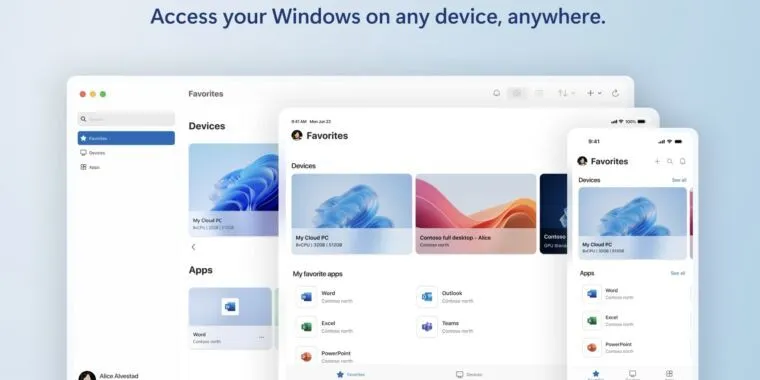Microsoft releases a new Windows app called Windows App for running Windows apps
Microsoft releases a new Windows app called Windows App for running Windows apps

arstechnica.com
Microsoft releases a new Windows app called Windows App for running Windows apps


